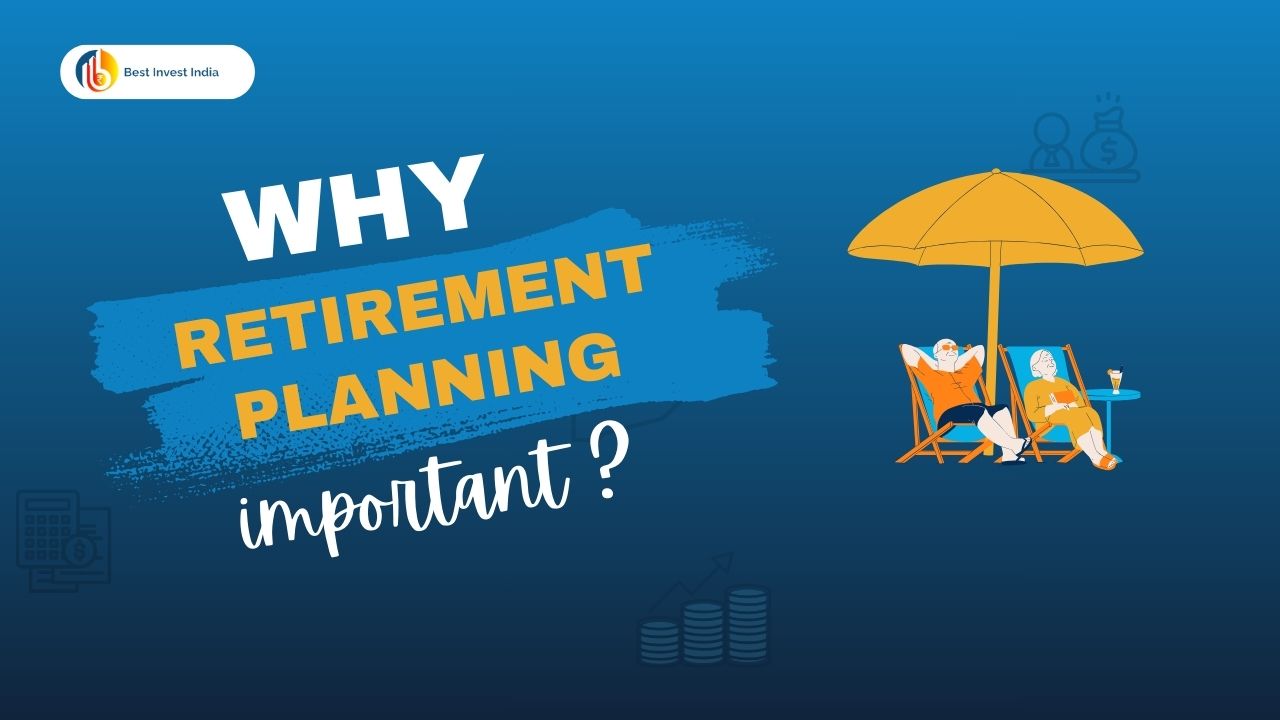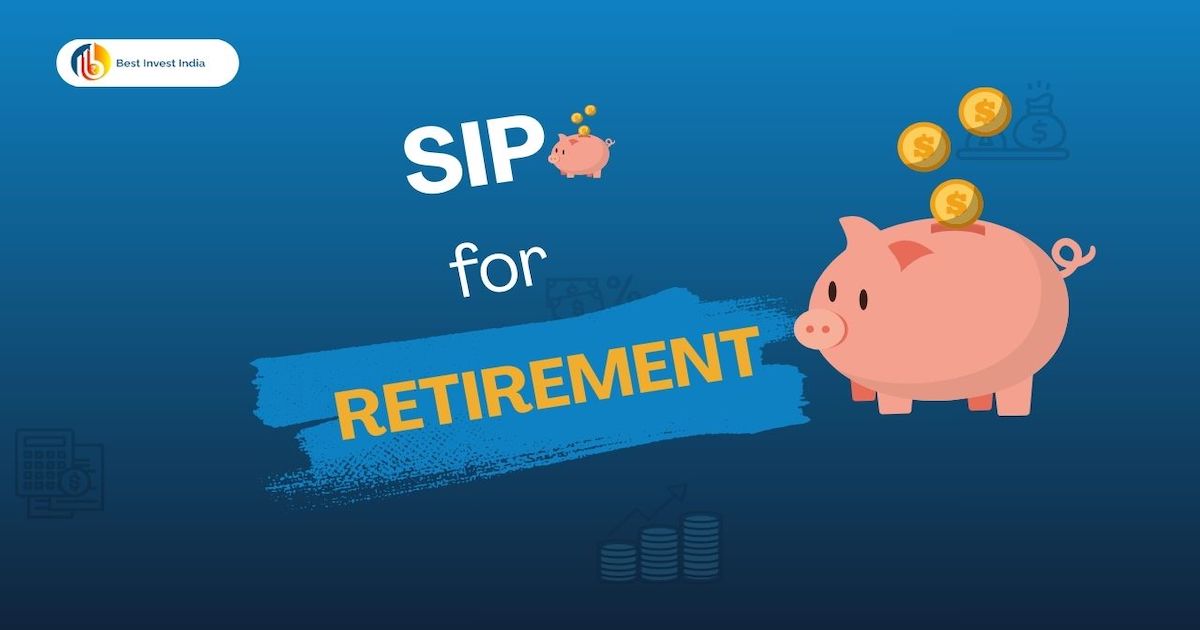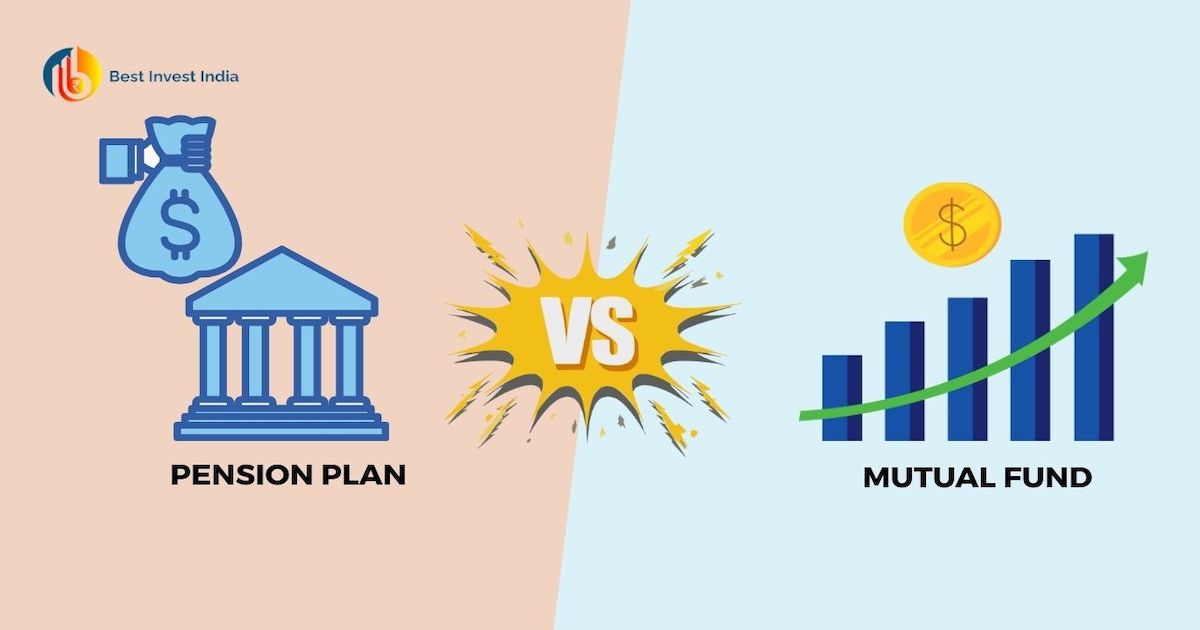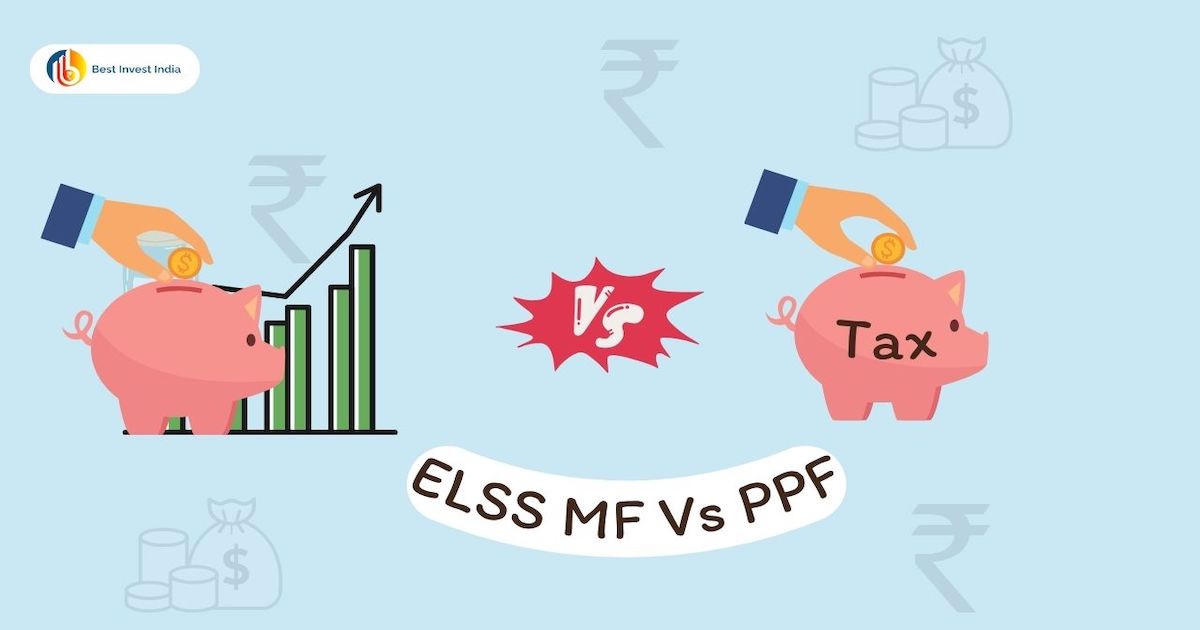Imagine you’re 60, your monthly salary stops, but expenses continue—bills, groceries, medical costs, travel plans, and maybe even supporting your children or spouse. Who will pay for it? That’s why retirement planning is important.
Retirement planning is not just about saving money—it’s about creating financial independence so that you can live with dignity and freedom, even after you stop working.

Table of Contents
What is Retirement Planning?
Retirement planning is the process of saving and investing your money today to build a fund (retirement corpus) that will support your lifestyle when you no longer have a regular salary.
It is the right estimation of how much will be needed in future to generate a passive income. Essentially, it is your long vacation planning to live stress free life happily.
Key elements include:
- Savings: Building emergency funds and reserves.
- Investments: Using instruments like NPS, mutual funds, PPF, EPF.
- Healthcare Planning: Having adequate health insurance for medical needs.
- Inflation Protection: Ensuring money grows faster than inflation.
Retirement planning essentially calculates the required future corpus to generate inflation-linked passive income (increasing annual income), how much you need to invest to accumulate that much corpus and if you are likely to meet your goal and let you know timely, if any shortfalls with your current investment.
Plan your retirement in 9 Easy steps : 9 Super Easy Steps to Retirement Planning
It also makes additional provisions to reach the desired goal. A Retirement plan takes rental income & other income sources, and your retirement benefits into account.
Why is Retirement Planning Important in India?
Rising Life Expectancy – Indians are now living longer, which means you need more money to last 20–25 years after retirement.
Lack of Social Security – Unlike Western countries, India doesn’t provide universal pension. You are responsible for your own retirement fund.
Inflation – Rs 50,000 today may not even cover your monthly grocery and medical bills in 20 years.
How much is enough for retirement in India?
Increasing Healthcare Costs – Medical inflation in India is rising at 12–14% annually. Without planning, medical expenses can eat away your savings.
Avoid Stress Related to Financial Problems-Not adequately planning for retirement can create unnecessary stress. This will increase if you have children in school or a mortgage or home rental to pay for every month. Having the peace of mind of a robust pension plan will minimise this type of stress.
BestinvestIndia guides individuals to plan their Retirement. It creates a personalized Retirement Plan( to cater individualistic needs) and monitors it periodically to ensure the investments and future planning is right on track.
When Should You Start Retirement Planning?
The earlier you start, the better.
This is because of the power of compounding—your money earns returns, and those returns also earn returns.
Example:
- If you start investing Rs 5,000/month at age 25, you could build Rs 3–4 crore by 60.
- If you start at age 35, the Same amount gives you Rs 1–1.5 crore.
- If you start at age 45, you may end up with less than Rs 50 lakh.
The difference is huge- all because of compounding.
Key Retirement Planning Options in India
Insurance: Health insurance & term life insurance to protect your family.
National Pension Scheme (NPS): Low-cost, long-term pension plan with tax benefits.
Public Provident Fund (PPF): Safe, government-backed, 15-year scheme.
Employee Provident Fund (EPF): For salaried employees, employer + employee contribution.
Mutual Funds (via SIPs): Best for long-term wealth creation and inflation beating returns.
Conclusion
Retirement is not about stopping work; it’s about financial freedom—living life on your own terms. The earlier you plan, the better your chances of building a secure, stress-free future.
Pro Tip: Don’t just rely on EPF/PPF. Mix SIPs, NPS, and insurance for a strong retirement portfolio.
FAQs
Q1. Is 30 too late to start retirement planning in India?
No, it’s not too late, but earlier is always better. You may need to invest more aggressively to catch up.
Q2. Can fixed deposits (FDs) be enough for retirement?
No, because FDs give ~6–7% returns, while inflation eats 6–7% yearly. You need equity exposure for long-term growth.
Q3. How do I calculate my retirement needs?
Use a retirement calculator. A thumb rule: Corpus = Monthly Expense * 12 * No. of years after retirement (adjusted for inflation).
Does Retirement Planning same for everyone?
We all are unique individuals and have our own unique circumstances and different requirements. A regular income might be your only need but the other person may require to leave a legacy and the other person wants to have a world tour after retirement.
Therefore, Retirement Planning is à personalised plan and is prepared separately for each individual based on his or her requirements.
Additional resources
Connect With an Advisor Today
It’s always easier to chase your dreams and financial goals when you have the right guidance and support. That’s why having a trusted investment professional by your side can make all the difference.
Our expert will work with you to design a retirement plan that fits your unique needs and lifestyle. They’ll also help you understand the wide range of investment options available in India, like mutual funds, PPF, NPS, fixed deposits, and more.
So you can make smart choices with confidence. And when the markets go through ups and downs, you’ll have someone to guide you and keep your plan on track.
Next Steps
If you’d like to clearly understand your current financial position and know exactly how much you should be saving each month to achieve the retirement you desire, take our Retirement Assessment today. Whatsapp number 8178594989. mail info@bestinvestindia.com ( write Achieve Retirement).










